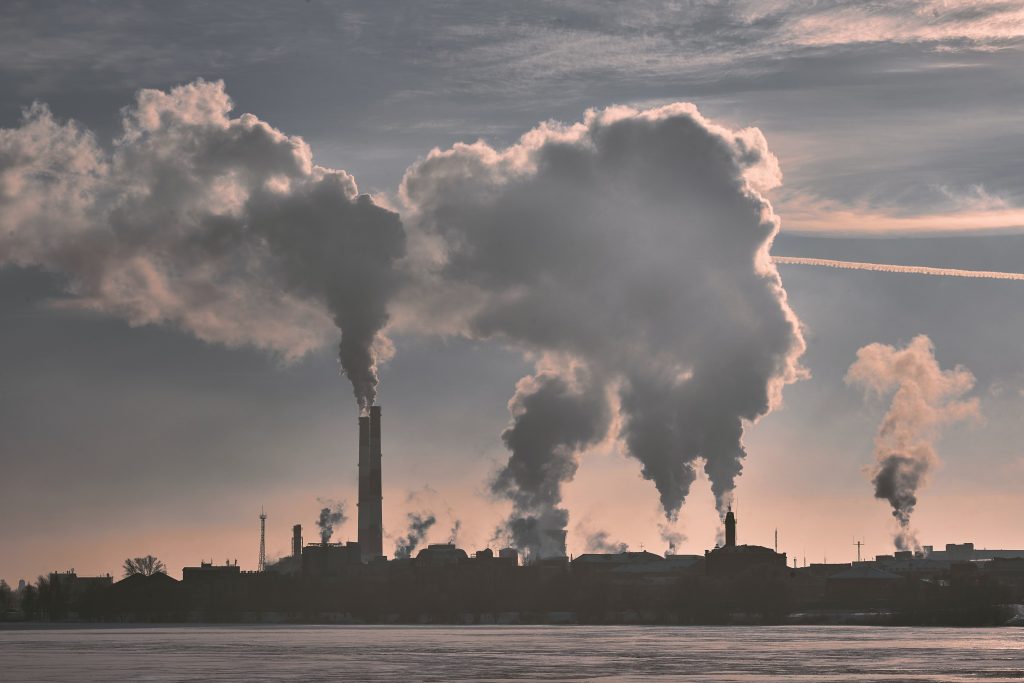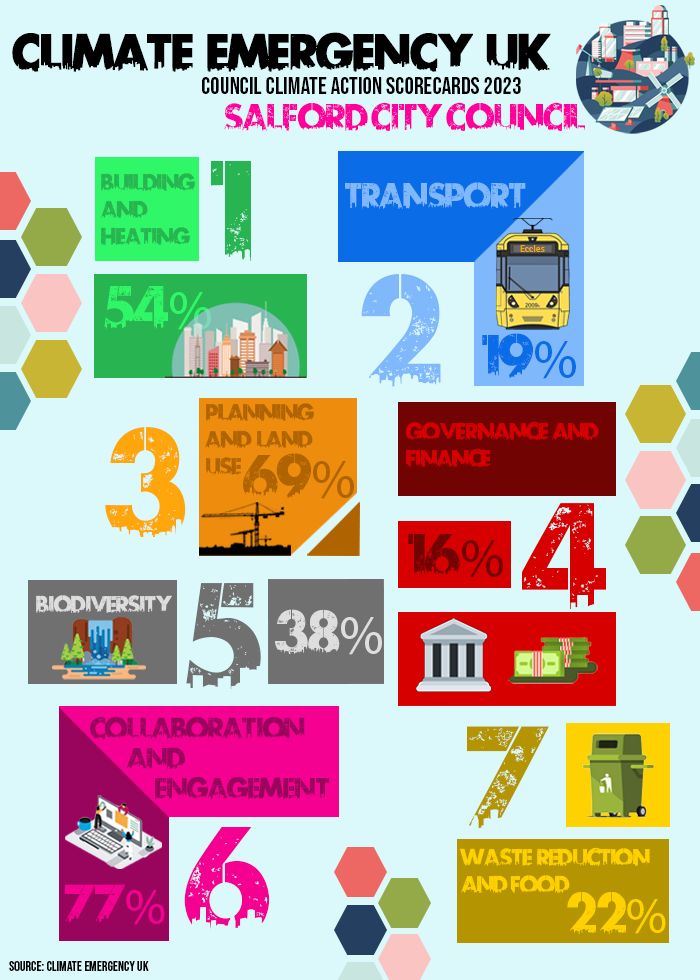
Salford has lost out in climate rankings because its air pollution is so bad.
The council was penalised for violating safe Word Health Organisation air pollution guidelines for high levels of nitrous dioxide (NO2) as well tiny particulate matter – both are common pollutants resulting from road travel.
The council was also downgraded for having direct investments in airports or high carbon-intensive energy industries.
Overall Climate Emergency UK ranked Salford council as third most proactive towards net zero emissions in Greater Manchester and 54th nationwide.
Its study ranked every council across the UK on seven factors – buildings and heating, transport, planning and land use, governance and finance, biodiversity, collaboration and engagement, and waste reduction and food.
Across these matters Salford City Council came in 54th most proactive out of 314 councils.
This places Salford as the third highest out of the ten Greater Manchester Boroughs, only beaten by Bury and Manchester.

The council excelled in buildings and heating, scoring 54%, whilst receiving 77% in collaboration and engagement and 69% in planning and land use.
On the other hand, Salford was dished out two penalties in transport (19%) and in governance and finance (16%) while receiving just 22% in waste reduction and food.. Biodiversity scored middle of the road with 38%.
The council was penalised in the transport area for the violations of safe Word Health Organisation air pollution guidelines.
This includes the surpassing of nitrous dioxide (NO2) limits as well as PM 2.5 levels, tiny particulate matter that is 2.5 microns or less in diameter.
These factors incurred a penalty of 10%.
The council was commended for its work with local community work in decarbonisation as well as their transparency and activeness in releases net zero action plans.
Climate Emergency UK said: “This is the first time a comprehensive list of actions that councils can and are taking to reduce greenhouse gas emissions has been created with the actions being scored. Therefore, extensive desk-based research was carried out to create this methodology.”
The charity analysed hundreds of documents and papers to create a foundation to base the scorecards on.
The study was set up to “hold councils to account on their claimed climate action” after their declarations to do so in 2018.
According to the Climate Change Committee’s Local Authorities and the Sixth Carbon Budget Report: “More than half of the emissions cuts needed rely on people and businesses taking up low-carbon solutions – decisions that are made at a local and individual level.
“Many of these decisions depend on having supporting infrastructure and systems in place. Local authorities have powers or influence over roughly a third of emissions in their local areas.”
Salford City Council gave no comment.














Recent Comments